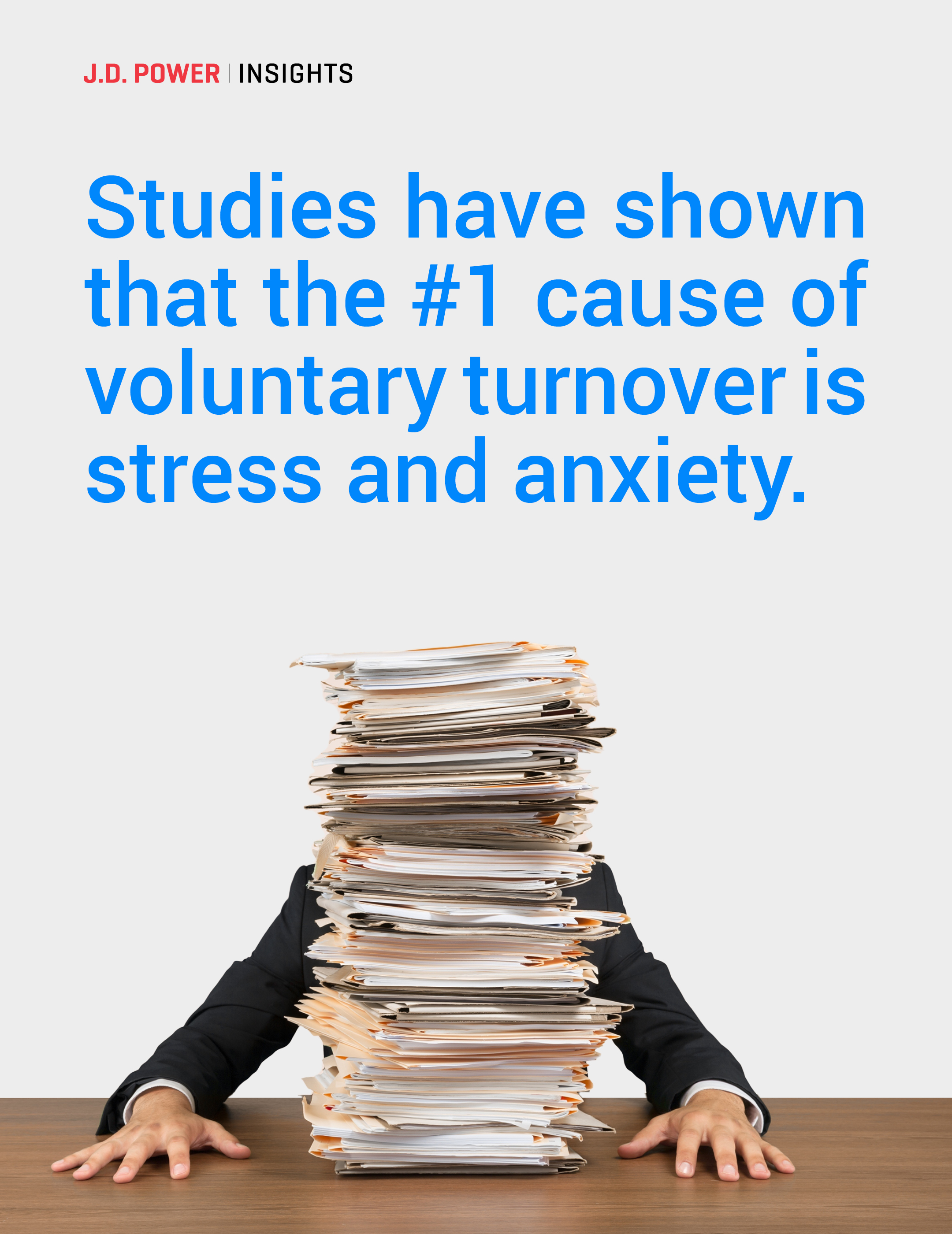We’ve looked at the first two imperatives that are necessary for the supervisor’s success during increased resignation in the workforce. In the previous blog, we broke down why it’s crucial for the supervisor to bridge disconnection among team members within an organization. Once this disconnect has been addressed, the supervisor can move on to the next imperative: Reduce Stress and Anxiety.
The Third Imperative: Reduce Anxiety in the Workplace
Stress in the workforce is not a brand-new occurrence, it has however become a heightened issue with the challenges in today’s working environment. It’s important to recognize that there is a certain amount of anxiety natural to work, but significant feelings of anxiousness are attributed to poor management, poor structure, and poor policies.

Due to high levels of stress across industries, employees are leaving the workforce entirely, and their positions are not being replaced. The Baby Boomer Generation is retiring early and leaving a large vacancy of positions open. Gen Z was predicted to fill these open roles, but they are entering the workforce at lower rates than expected with huge levels of turnover due to the stress they experience in their positions.
The Supervisor’s Role in Reducing Stress
The frontline supervisor plays a fundamental part in employee stress, though in some cases they themselves are the main cause of their team’s frustrations. Numerous studies have revealed that the perception of stress that is caused by a supervisor is directly correlated to whether an employee feels that their work is worthwhile and whether they want to stay with that company. As previously mentioned, “small unit leadership is really what holds people together as a group, and also holds a company together with all of those groups being held together independently.” If the frontline leader fails to reduce frustrations among their team, this will only break apart these units and lead to more anxiety among the employees they manage.
What Steps Can an Organization Take to Support a Supervisor?
Successful and high-performing call center teams have one thing in common, there is a focus on the supervisor. What does this mean?
- The supervisor should be given enough time to perform their primary role. Remote supervisors often find themselves filling other duties like HR or triaging IT challenges. This takes away from their primary mission of managing their employees.
- When a promotion occurs, the supervisor should undergo extensive training during the transition period to develop the skills of an effective leader. Intentional and thoughtful training allows the supervisor to lead, coach, and develop relationships with employees.
- Team span of control should be examined. A supervisor will be a better leader when they are managing a team of 10 versus a team of 25.
Final Thoughts
Although there is a major responsibility for organizations to step up supervisor support, there also needs to be some self-reflection from the supervisor. They need to become aware of any stress on their team and understand what they can do to mitigate frustrations. Supervisors are usually the first line of defense in reducing anxiety amongst team members. Without the right training, they won’t know how to relieve anxieties, and instead, they could create even more stress for their team.
No Comments Yet
Let us know what you think